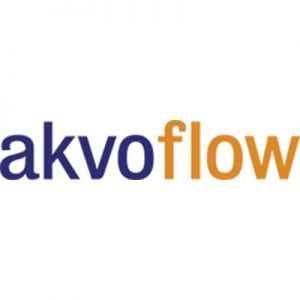
Agriculture
June 5, 2024
Akvo Flow
Read SolutionImplemented by
Akvo Flow
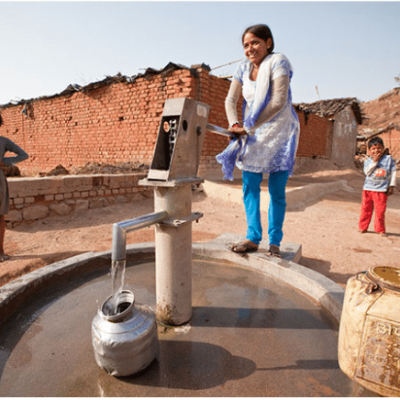
Updated on June 24, 2024
·Created on August 27, 2015
The AFD-1 Water Flow Sensor measures water flow rates within an Afridev or India Mark II handpump and transmits data via mobile networks.
AFD-1 water flow meter measures water flow rates within an Afridev or India Mark II handpump and transmits data to enable response by local repair teams. It comes with a software platform, called Dispatch Monitor™, that will receive incoming data packets from those sensors and visualize that information for anyone in the world.
The data is transmitted via a GSM network and the information is used to determine the state of the pump and the water consumption patterns. Charity: Water uses the information to allow donors to see the state of the wells they fund.
Target SDGs
SDG 6: Clean Water and Sanitation
SDG 3: Good Health and Well-Being
Market Suggested Retail Price
$105.00
Target Users (Target Impact Group)
Community, NGOs
Distributors / Implementing Organizations
Charity: water with Partner NGOs.
Competitive Landscape
Direct competitors include MoMo Remote Sensor and SWEETSense Technologies.
Countries
Ethiopia
Manufacturing/Building Method
AFD-1 water flow sensor is manufactured by PCH Lime Lab in China.
Intellectural Property Type
Open-source
User Provision Model
For now, only the charity: water team and its local project partners can access the charity: water sensor and the software interface Dispatch Monitor.
Interested users can contact charity:water or build their own sensor and monitoring platform.
Distributions to Date Status
1,000 of a planned 3,500 sensors have been installed on Afridev hand pumps in rural communities in Ethiopia, as of March 2016.
Of that number, 700 are actively transmitting hourly water-flow data to the cloud, thanks to an embedded virtual SIM card and "pre-existing roaming agreements with every telecom company in the world." The other 300 sensors are located in areas with no cell service
Power requirement (mA)
Unknown
Processing platform
Cloud-based
Remote Sensor Calibration (Y/N)
Yes
Reporting modalities (wifi/ cellular network/other)
Cellular network (2G GSM)
Sampling rates (Hz)
0.0167 – 1
Sensor type(s)
Capacitance sensors
Design Specifications
The AFD-1 meter uses capacitance sensors to measure hourly volumes of water flow. Each sensor's reading is compared to the past hour's maximum value. If the delta is greater than the predetermined threshold, the pad is considered "submerged". The highest "submerged" pad is used to estimate that second's volume. If hourly stored estimates are unavailable, daily usage can be calculated from the sensor statistics. The sensors are powered by a lithium battery rated to last 12 years.
The sensors and batteries are located in an FDA-approved plastic enclosure intended for operation in harsh conditions. The full package is waterproof and can withstand temperatures up to 140 degrees F and 70mph impact.
AFD-1 meter has open-sourced files for both the sensor and the Dispatch Monitor™ including firmware specifications, mechanical and electrical design drawings, test cases, and code.
The AFD-1 meter is designed to be integrated into the Afridev or India Mark II pump, without interfering with pump functionality, water flow, or regular pump maintenance. According to Charity:water, installation takes 15 minutes and can be done by untrained individuals.
Technical Support
charity: water's Pipeline program is set up to train teams of mechanics on how to fix any problems with the water pumps. These teams are set up regionally and handle 50 - 100 water points per team.
Replacement Components
Unknown
Lifecycle
Battery lifespan: 12 years
Manufacturer Specified Performance Parameters
AFD-1 Sensors are capable of transmitting data from remote, low connectivity areas, as well as learning the "normal" behavior of a given well and reporting immediately when there is a significant behavior change. The AFD-1 Meter does not impede pump functionality Pipeline pamphlet charity:water
Vetted Performance Status
No publicly published data available to date.
Safety
No known safety hazards are related to this product.
Complementary Technical Systems
The AFD-1 meter is an information gathering system for Afridev, India Mark II, and other pumps worldwide. It must be attached to an existing pump for it to have any use.
Academic Research and References
Volpe, Joseph. 2016. “The 21st-Century Charity That Puts Google and VR to Good Use.” Engadget. March 3, 2016. https://www.engadget.com/2016-03-03-charity-water-puts-google-and-vr-to-good-use.html
“Wanna Build Your Own Sensor?” n.d. Tumblr. Accessed June 24, 2024. https://blog.charitywater.org/post/143498518002/wanna-build-your-own-sensor
“Pipeline.” n.d. Charitywater.Org. Accessed June 24, 2024. https://charitywater.org/pipeline/
“Goal 6.” n.d. Sdgs.Un.Org. Accessed June 24, 2024. https://sdgs.un.org/goals/goal6
Dispatch-Monitor. n.d. Accessed June 24, 2024. https://github.com/charitywater/dispatch-monitor
“Remote Monitoring Program Remote Sensor Project Outpour Firmware Specification.” n.d. Cloudfront.Net. Accessed June 24, 2024. https://d182ybupo45p5z.cloudfront.net/dispatch-monitor/OutpourFirmwareSpecification2.8.pdf
“Pipeline.” n.d. Charitywater.Org. Accessed June 24, 2024. https://archive.charitywater.org/pipeline/
“Product Development & Customized Supply Chain.” 2021. PCH International. March 4, 2021. https://www.pchintl.com/
“New Technology Supported by Google.” n.d. Tumblr. Accessed June 24, 2024. https://blog.charitywater.org/post/143492619882/new-technology-supported-by-google?is_related_post=1
Compliance with regulations
Product utilizes FDA-approved plastic. Pipeline pamphlet charity:water
Evaluation methods
Field trials – 100+ sensors have been field tested throughout the design process. Pipeline pamphlet charity:water Durability testing included drop, stress, and environmental testing.
Other Information
Funded through a $5 million "Impact Award" grant from Google.org in 2012 to develop and deploy the water flow sensor.

Agriculture
June 5, 2024
Implemented by
Akvo Flow
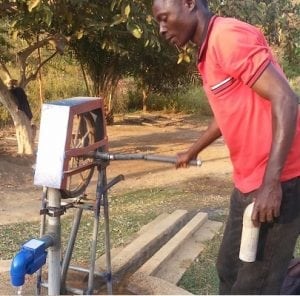
Agriculture
June 24, 2024
Implemented by
WellDone
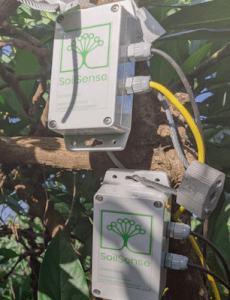
Agriculture
February 7, 2024
Implemented by
SoilSense
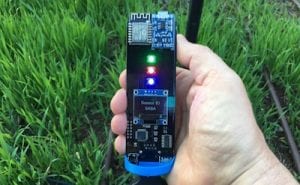
Agriculture
February 6, 2024
Implemented by
Australian Centre for International Agricultural Research
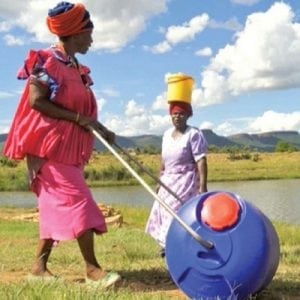
Agriculture
June 22, 2024
Implemented by
Hippo Roller
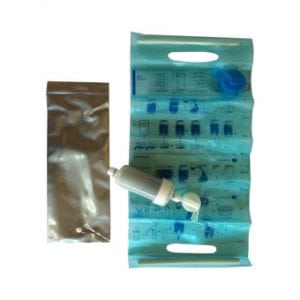
Agriculture
December 29, 2023
Implemented by
RealRelief
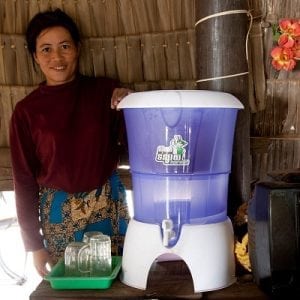
Agriculture
January 4, 2024
Implemented by
iDE
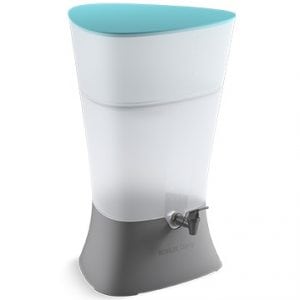
Agriculture
January 11, 2024
Implemented by
Kohler
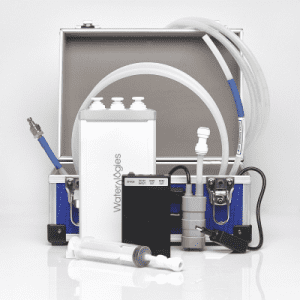
Agriculture
January 25, 2024
Implemented by
Waterologies
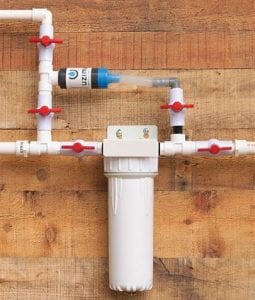
Agriculture
January 2, 2024
Implemented by
Uzima
Have thoughts on how we can improve?
Give Us Feedback
As per Bob: UV
technology requires a source of UV.
Although in developed countries this is not a significant issue in
developing countries and in remote areas the availability of UV hardware is
limited. Other components such as
housings, covers, electronics and controls are available if an appropriate
supply chain is developed and maintained to provide these materials at the
appropriate cost, quality and delivery to support production. No special piping or chemicals are required
to support UV sterilization.